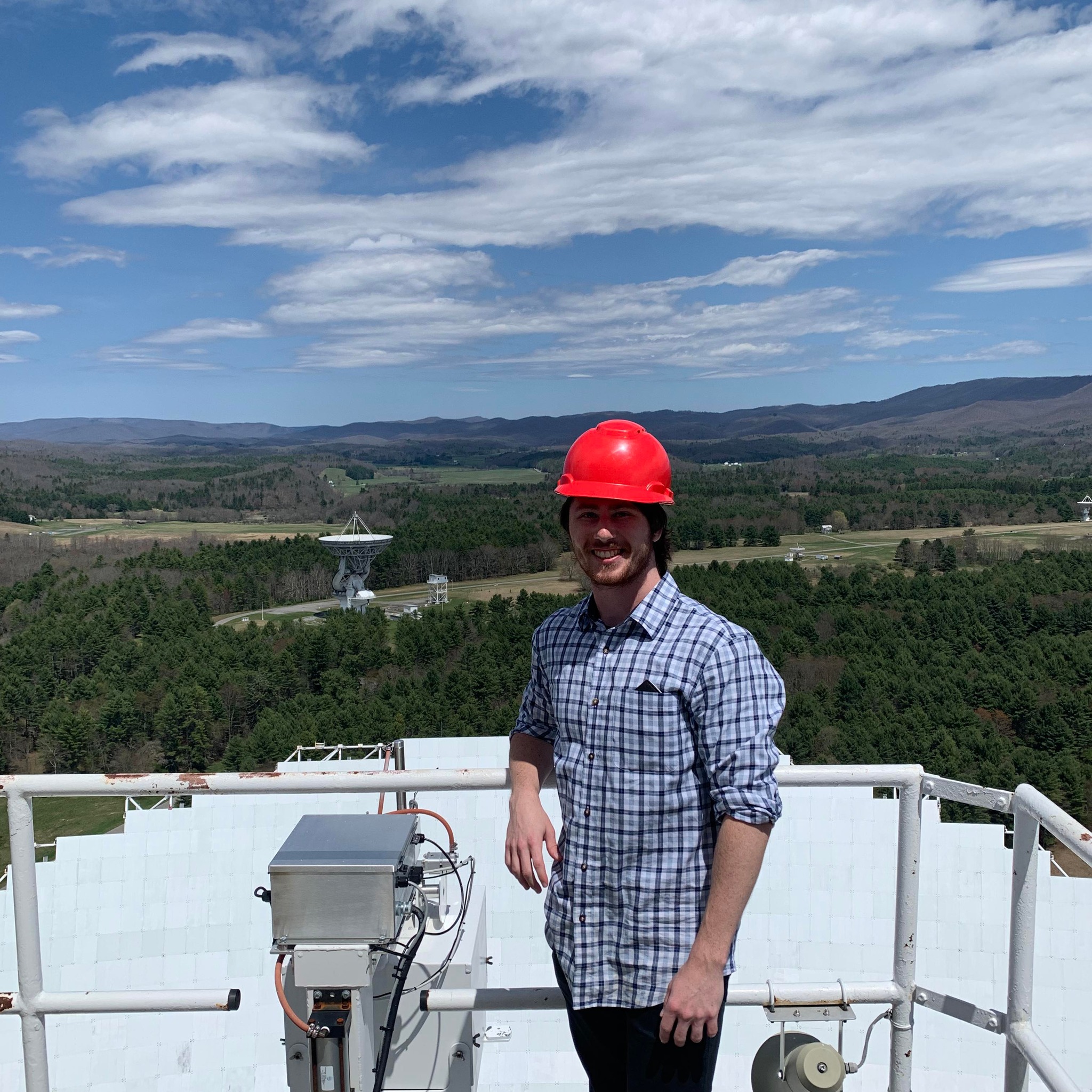Jacob Turner, PhD
About Me

Hi, I'm Jacob Turner, and I'm a Postdoctoral Fellow at Green Bank Observatory, home to the largest fully-steerable telescope in the world. I use radio emission from pulsars to probe the structure and behavior of the interstellar medium, as well as aid the NANOGrav collaboration in the detection of nanohertz frequency gravitational waves. I'm currently exploring applications of cyclic spectroscopy to pulsar timing, and helping to develop the world's first cyclic spectroscopy backend for the GBT.
My CVSelected Publications
- Pulsar Cyclic Spectroscopy in the Partial-Deconvolution Regime: Benefits & Limitations. Turner et al. (2025), ApJ
- The Pulsar Science Collaboratory: Multi-Epoch Scintillation Studies of Pulsars. Turner et al. (2024), ApJ
- A Cyclic Spectroscopy Scintillation Study of PSR B1937+21 I. Demonstration of Improved Scintillometry. Turner et al. (2024), ApJ
- A Simultaneous Dual-Frequency Scintillation Arc Survey of Six Bright Canonical Pulsars Using the Upgraded Giant Metrewave Radio Telescope. Turner et al. (2024), ApJ
- Scattering Delay Mitigation in High Accuracy Pulsar Timing: Cyclic Spectroscopy Techniques. Turner et al. (2023), ApJ
- The NANOGrav 12.5-Year Data Set: Monitoring Interstellar Scattering Delays. Turner et al. (2021), ApJ
Invited Talks
- Scintillometry Workshop 2025 (McGill University): "Exploring The Benefits and Feasibility of Cyclic Spectroscopy in Different Deconvolution Regimes" (October 2025)
- Oregon State University: "Pulsar Cyclic Spectroscopy as a Probe of the Interstellar Medium & Gravitational Waves" (August 2025)
- GRASP Lecture Series: "Pulsar Cyclic Spectroscopy as a Probe of the Interstellar Medium & Gravitational Waves" (August 2025)
- Green Bank Observatory Community Zoom: "An Extreme Scattering Event Towards PSR B2310+42" (June 2025)
- Georgia State University: "Pulsar Cyclic Spectroscopy as a Probe of the Interstellar Medium & Gravitational Waves" (April 2025)
- University of Kansas: "Pulsar Cyclic Spectroscopy as a Probe of the Interstellar Medium & Gravitational Waves" (April 2025)
- Scintillometry Workshop 2024 (Florida Space Institute): "The Green Bank Observatory Real-Time Cyclic Spectroscopy Backend" (October 2024)
- Florida Space Institute: "Using Cyclic Spectroscopy to Study the Interstellar Medium with Pulsar Timing Arrays" (September 2024)
- Florida Institute of Technology: "Using Cyclic Spectroscopy to Study the Interstellar Medium with Pulsar Timing Arrays" (September 2024)
- University of Dallas: "Two Paths to Radio Astronomy" (April 2024)
- McDaniel College: "Characterizing the Interstellar Medium through Radio Observations of Pulsars" (November 2023)
- Green Bank Observatory: "Correcting for Interstellar Scattering Delays in Millisecond Pulsars" (November 2020)
- Oberlin College: "Detecting Gravitational Waves with Pulsars: Removing the Effects of the Interstellar Medium" (April 2017)